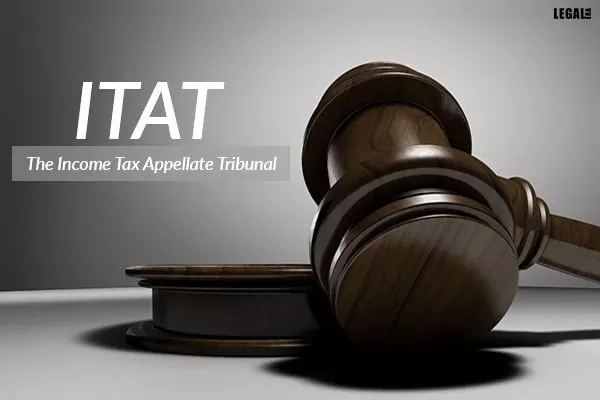- Home
- News
- Articles+
- Aerospace
- Agriculture
- Alternate Dispute Resolution
- Banking and Finance
- Bankruptcy
- Book Review
- Bribery & Corruption
- Commercial Litigation
- Competition Law
- Conference Reports
- Consumer Products
- Contract
- Corporate Governance
- Corporate Law
- Covid-19
- Cryptocurrency
- Cybersecurity
- Data Protection
- Defence
- Digital Economy
- E-commerce
- Employment Law
- Energy and Natural Resources
- Entertainment and Sports Law
- Environmental Law
- FDI
- Food and Beverage
- Health Care
- IBC Diaries
- Insurance Law
- Intellectual Property
- International Law
- Know the Law
- Labour Laws
- Litigation
- Litigation Funding
- Manufacturing
- Mergers & Acquisitions
- NFTs
- Privacy
- Private Equity
- Project Finance
- Real Estate
- Risk and Compliance
- Technology Media and Telecom
- Tributes
- Zoom In
- Take On Board
- In Focus
- Law & Policy and Regulation
- IP & Tech Era
- Viewpoint
- Arbitration & Mediation
- Tax
- Student Corner
- AI
- ESG
- Gaming
- Inclusion & Diversity
- Law Firms
- In-House
- Rankings
- E-Magazine
- Legal Era TV
- Events
- News
- Articles
- Aerospace
- Agriculture
- Alternate Dispute Resolution
- Banking and Finance
- Bankruptcy
- Book Review
- Bribery & Corruption
- Commercial Litigation
- Competition Law
- Conference Reports
- Consumer Products
- Contract
- Corporate Governance
- Corporate Law
- Covid-19
- Cryptocurrency
- Cybersecurity
- Data Protection
- Defence
- Digital Economy
- E-commerce
- Employment Law
- Energy and Natural Resources
- Entertainment and Sports Law
- Environmental Law
- FDI
- Food and Beverage
- Health Care
- IBC Diaries
- Insurance Law
- Intellectual Property
- International Law
- Know the Law
- Labour Laws
- Litigation
- Litigation Funding
- Manufacturing
- Mergers & Acquisitions
- NFTs
- Privacy
- Private Equity
- Project Finance
- Real Estate
- Risk and Compliance
- Technology Media and Telecom
- Tributes
- Zoom In
- Take On Board
- In Focus
- Law & Policy and Regulation
- IP & Tech Era
- Viewpoint
- Arbitration & Mediation
- Tax
- Student Corner
- AI
- ESG
- Gaming
- Inclusion & Diversity
- Law Firms
- In-House
- Rankings
- E-Magazine
- Legal Era TV
- Events
ITAT Cuttack: Fault cannot be placed on Revenue or Assessee in case Delay by State to Issue Necessary Certificates

ITAT Cuttack: Fault cannot be placed on Revenue or Assessee in case Delay by State to Issue Necessary Certificates
The Income Tax Appellate Tribunal (in short ITAT), Cuttack by its two-member bench comprising of George Mathan (Judicial Member) and Arun Khodpia (Accountant Member) quashed the revision proceedings initiated in the name of a deceased person. Even though, the revenue had acted fast when it had received the legal heir certificate, however, there was a delay at the level of State Government in issuing necessary certificate. Fault cannot be placed on the Revenue or the assessee.
In the aforementioned case, the assessee expired on 12 October, 2020. The information regarding death of the assessee had been orally intimated to the Assessing Officer. It was submitted by the appellant that the death certificate had been issued by the Government of Odisha only on 8th March, 2021. It was the submission that as the death certificate had been issued only on 8th March, 2021, the assessee had applied for legal heir certificate, which was issued only on 28th February, 2022.
The legal heir did not know the proceedings had been initiated under Section 263 of the Income Tax Act, 1961 (hereinafter referred to as 'the Act'). They could not upload the information to the income tax portal without a legal heir certificate because the information was not accepted unless they had both the documents- death certificate and a legal heir certificate.
It was contended by the legal heir that the order passed under Section 263 was on a deceased assessee and, therefore, the order under Section 263 is liable to be quashed.
The department defended stating that there was no information available with the Principal Commissioner of Income Tax (hereinafter referred as 'Pr. CIT') in respect of the death of the assessee. Therefore, it cannot be held that the Pr. CIT has passed an order under Section 263 of the Act on a deceased assessee. He had no objections to the matter being returned to the file of the Pr. CIT for redoing the order on the legal heir after a fair hearing.
The ITAT observed that, on the death of an individual, the government draws information in respect of death from the cremation spot or on the basis of a doctor's death certificate. The state government then issued the death certificate within 7 to 14 days. The legal heir certificate was applied for and obtained. During the COVID period 2020-2021, the assessee died of cancer on 12th October, 2020. The death certificate has been issued after nearly four months.
The ITAT held that there was no provision under which the legal heir could have intimated the revenue regarding the death of the assessee as they had no certificate issued by the statutory authorities to prove the death. Without the statutory authority certificate, the revenue would not accept the fact of the death either. It is only after obtaining the death certificate that the legal heir certificate can be applied for. The legal heir certificate had been issued to the assessee on 28th February, 2022.
The Tribunal held that the addition in the appeal was Rs. 11 lakh, and as the order has been passed on to a deceased assessee, it stood quashed.




